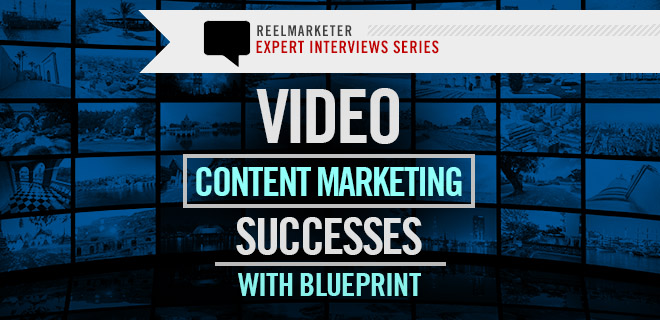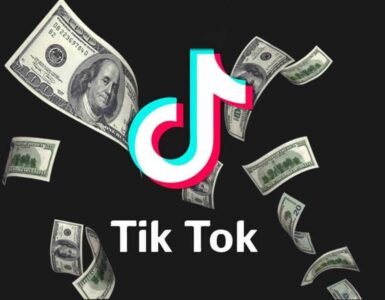We're thrilled to have an exclusive interview with Managing Director of Blueprint, Mungo Park. A real treat for our readers as Blueprint is content marketing agency that focuses on video production and digital strategy – exactly what your business needs. Mungo Park, in his own words:
What is Content Marketing?
Mungo Park / Blueprint: Content marketing is connected to the idea that people are inherently selfish. Nobody cares about you or your company, they only care about themselves. So how can you produce content that is relevant and resonates with your audience, particularly for businesses where broadcast or traditional advertising is not relevant to you or your customer base?
For many businesses the idea of content marketing sits between the comms and marketing department. This can be difficult to coordinate as many companies don't even have their sales and marketing teams interacting or collaborating properly. Add to that the challenges of producing a creative narrative or storytelling and you can quickly hit roadblocks.
But these challenges are clearly nothing new… And the idea of using content in marketing is nothing new either, even if the trend has taken off in recent years.

In 1895 the John Deere Tractor Company in Moline, Illinois produced a magazine called “The Furrow”. The magazine helped farmers stay on top of the latest developments in modern farming equipment and a variation of it is still available today.
By showcasing the latest products in the market they were enhancing their reputation at the forefront of the sector, increasing awareness and creating a powerful platform from which to market their business. This is one of the earliest examples of the “advertorial” format.
Fast forward 120 years and every generation since thinks they have reinvented the marketing wheel when bandying around the term “content marketing”.
The term “content marketing” is increasingly connected to a theme of measurable data and performance. Digital marketing results are easy to quantify. Tracking customer conversions, sales cycles, inbound traffic, followers, social interactions, leads generated and IP addresses creates a detailed picture that you can break down, benchmark and improve on.

This is also something that can give you a clear line of sight on your returns. ROI is particularly important if your conversions require multiple interactions before a customer purchase or if your offering is expensive, very niche or requires a long term investment.
So whilst the concept of content marketing has been around for ages, the technology and data that underpins it hasn’t and this has resulted in a new terminology.
A terminology that supports rapid growth and change to a traditional marketing practice. So I guess you could argue both camps are right and content marketing is both old and new.
But you could also argue that not using the term is the equivalent of referring to your digital radio as “the wireless”.
When content marketing, why use online video?
Blueprint: Put simply, video is the most effective medium for content marketing. If a company produces a campaign they are typically looking for maximum engagement so video is the logical choice.
As Beth Comstock said “Whether B2B or B2C, I believe passionately that good marketing essentials are the same. We all are emotional beings looking for relevance, context and connection.”
Video is more likely to create an emotive response from the audience and as such generates more clicks, shares, likes, comments and gets people to stay longer on your content.
All of this can also have a huge effect on your search ranking for relevant terms that are used in your content.
How does Blueprint best serve it's clientelle?
Blueprint: We help businesses communicate and market more effectively with video because our work is underpinned by a strong focus on strategy.
Ideas and production have to be based on solid strategy in order for campaigns to target the right people in the right way and drive the best results. These results can improve digital authority, enhance reputations or drive revenue.
How does a business get a fresh content marketing with video?
Blueprint: The single greatest opportunity for businesses starting to use video in their content marketing is Inbound Marketing.

There is no point in buying a car if it does not get you anywhere – likewise, if you invest money in the production of video content you have to understand what is going on under the bonnet.
Inbound Marketing represents the largest change in the digital landscape that enables companies to take control of their content marketing and clearly see the return on investment.
There are many suppliers in this space (we partner with HubSpot). It is essential to understand the noise or impact your video has made by tracking your sources and seeing how everything interlinks. Creating an inbound marketing framework enables you to combine all of the following (and more):
- Blogs / news
- Social networks
- Email marketing
- Page rank / keyword performance
This is then combined with the relevant events as they occur. These events can be:
- Social interactions
- Mentions or links
- Tracked IP addresses for people / companies who visit your content
- Relevant sources for search terms
Conversions come from:
- Landing pages
- Calls-to-action
- Sign-up / lead capture forms
These are the things that ensure your audience can stand up, be counted and then nurtured until they convert into a client. Video is no longer used as a one-off project every few years to promote what you do.

Video marketing must be integrated throughout your marketing calendar and treated in the same way as all other content – build a solid foundation, execute a launch to relevant audiences and make sure you are able to understand its success.
This way you can use video content marketing to drive real leads to your business and understand what you get for what you spend.
When companies experience failure with their video, what's usually the cause?
Blueprint: Most companies that are considering stopping video as part of their content strategy are doing so because they have had a bad experience – either shoddy work or shoddy strategy which led to shoddy results.
How does a company get started with video content strategy?
Blueprint: The best way to communicate is through video! Here is a recent campaign we produced to explain best practice in video content marketing strategy:
What are some common issues that crop up for companies new to online video marketing?
Blueprint: It's all about communication. I will explain with a simple framework here.
- Understanding: It is essential for agencies to understand the culture of the company they are working with (and vice-versa). Understanding the values, brand and identity and being able to communicate that through the content is essential.
- Managing Expectations: Companies trying video for the first time often want to produce avatar for next to no money. They also want to be number one in Google instantly and generate X 20 returns on their investment overnight.
- Relevant Experience: Making sure the agency has the relevant sector experience as well as production experience based on the style of production you are choosing.
- Approvals: Making sure all stakeholders are involved and on the same page.
How can a business owner or internal marketing team best-prepare in advance to avoid these issues?
Blueprint: Using the same frame work as above, here's how:
- Understanding: Spend the necessary time to make sure your agency understands you, your company, your objectives and the way you do business.
- Managing expectations: Ensure your agency communicates clearly with you at every stage of production so you know what to expect with all outputs and results. This only really comes with experience.
- Relevant experience: Check!
- Approvals: At key stages of pre-production, production and post you need to ensure all stakeholders can see and approve the work to proceed. This ensures there are no surprises along the way – particularly late and expensive ones at the end of the production cycle.
Name a few projects that have benefited from your involvement?
Blueprint: Sure thing, here are a few project's we're quite proud of:
- Virgin Media Business – this was featured on bbc.com and the guardian.com
- EVCA – this got to number two in Google for the term “Private Equity” in Europe (Wikipedia was number one) generating up to 4000 hits per month from organic traffic.
- Williams F1 – this got to number one in Google for the term “Hybrid Flywheel” until the company was sold to GKN.
- Newton Investment Management – sponsorship of the Oxford and Cambridge Women’s Boat Race.
How does video ultimately hook buyers and create action?
Blueprint: This depends on your objectives. Video is often just a component of a successful campaign and the hooks and CTAs need to be placed at relevant places along the user journey.

Your hooks can be embedded at the core of a video but there are many other ways you can convert your viewer or generate a response – video drives the engagement and effectiveness that makes this happen and in turn produces the best results.
Where can our readers go to try out/learn about your services?
Mungo Park / Blueprint: Thanks for the opportunity to share with your readers. For more info, interested readers may view an introduction to video content marketing for business here.
Beginner’s guide to video marketing here.
Website: http://www.blueprint.tv
YouTube: Blueprint on YouTube
Twitter: blueprint.tv on Twitter
Twitter: Mungo Park on Twitter
Facebook: Blueprint on Facebook
Google+: Blueprint on Google+
LinkedIn: blueprint.tv
LinkedIn: Mungo Park






[…] Visit link: Video Content Marketing Successes with Blueprint […]